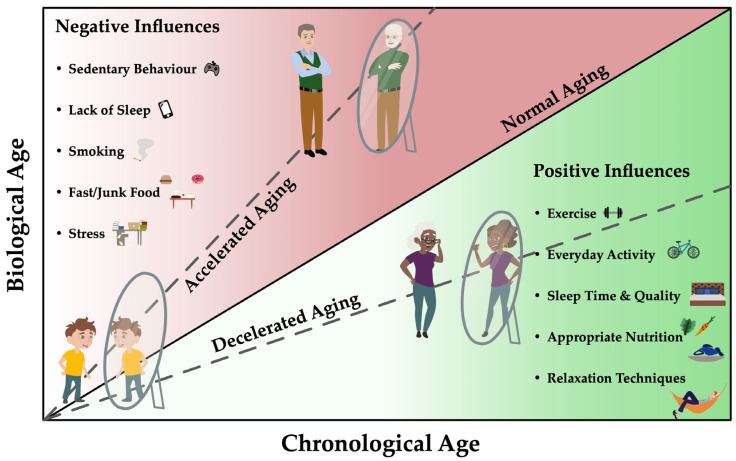Figure 1.
Biological age correlates with the chronological age of a person and depends, among other things, on genetic predisposition, phenotypic changes and epigenetic changes. Nutritional, environmental, psychosocial and other lifestyle (exercise, weight) factors have the potential to both delay and accelerate the aging process and thus modulate risk of diseases. Specific biomarkers could serve as biological age predictors for risk assessment of age-specific diseases and thus influence the aging process positively as well as negatively. This could allow the detection of differences in the risk of age-related diseases for individuals of the same chronological age and identify pathways that have the potential to target these negative epigenetic changes.

